Among the most unexpected developments in the debate over the One Big, Beautiful Bill Act is how fierce the debate over artificial intelligence deregulation has become, with lawmakers on both sides of the issue fighting to determine how the technology will shape the world by 2035.
Currently, the Senate’s framework for the bill contains a provision that would cut states off from critical federal broadband funding if they don’t eliminate regulations on artificial intelligence.
If left in the bill, that provision would strongly discourage states from regulating the developing technology for a decade.
Rep. Marjorie Taylor Greene, R-Ga., has said she will vote against the bill if it contains the provision, which she calls a “poison pill” and contends violates states’ rights. Greene’s opposition could spell trouble for the bill, which passed the House by just a single vote in May.
Rep. Chip Roy, R-Texas, also has criticized it, albeit more obliquely, saying AI regulations are “used by states to protect their constituents.”
House Speaker Mike Johnson, R-La., however, told The Daily Signal that he wants AI deregulation to remain in the bill.
“If some of the deep blue states smother it with regulation, as they’re prone to do, then it might hamper our development, and it could put us in a compromised position against our enemies, China and others,” he said.
Asked if he might tweak the disputed provision instead of seeking to get it removed, Johnson said, “I like it in its current form. I mean, I know the president supports it in its current form, so we’ll see where that goes.”
But what’s at stake with the provision, and is it a make-or-break issue?
Wesley Hodges, who covers Big Tech issues at The Heritage Foundation, told The Daily Signal, “What currently is at play is a provision in the big, beautiful bill that if a state takes a single dollar of new BEAD [Broadband Equity, Access, and Deployment] funding … that state is subject to a 10-year—what they call a ‘temporary‘—pause on all tech governance.” That new broadband funding amounts to about $500 million.
But the AI regulation moratorium provision gets even more severe than that, Hodges said.
“The provision allows the Commerce Department not just to take back that small pot of money, but the entirety of the grants given through the BEAD program. So, this is not just a $500 million problem. This is a $42 billion problem for any state that governs tech and takes BEAD funding.”
As of Thursday afternoon, it was still unclear whether or not the language might be changed to ensure only the $500 million could be denied.
Sen. Maria Cantwell, D-Wash., ranking member of the Senate Commerce, Science, and Transportation Committee, was quoted by Politico on Thursday as saying that the Senate parliamentarian was asking the committee to exclude the $42 billion from being held hostage in the provision.
Hodges thinks cutting BEAD funding would devastate rural states.
“What this means is, predominantly rural, red states are not going to get the funding that they need to connect them to the internet … to connect them to the broader United States economy,” he said.
He added that “it puts handcuffs on the states that may well be providing a much better framework for AI governance.”
The Daily Signal asked members of the House Freedom Caucus—a group Greene used to be a member of—whether or not the issue was high on their radar.
“Not at all,” said House Freedom Caucus Chairman Rep. Andy Harris, R-Md. “That’s not going to be a deal-breaker for anyone.”
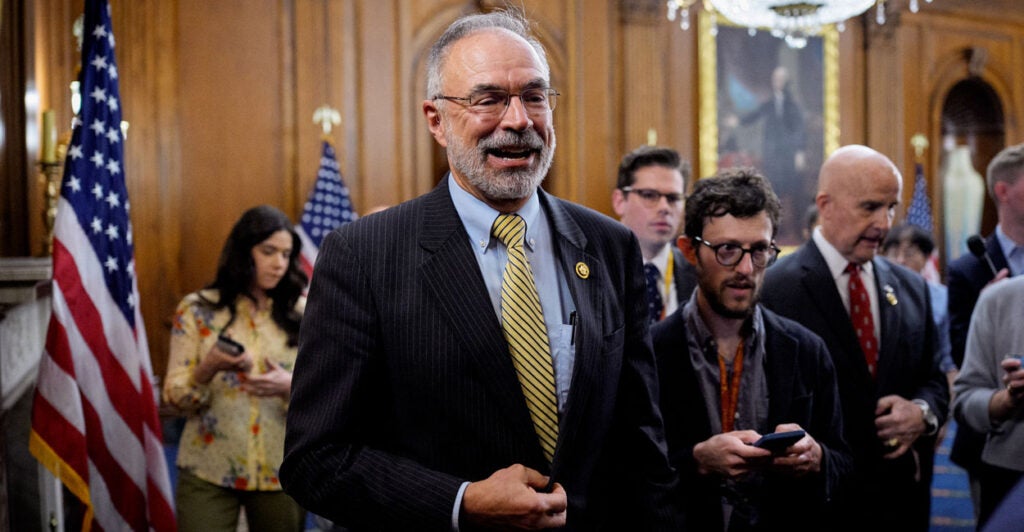 Chairman of the House Freedom Caucus Rep. Andy Harris, R-Md. (Andrew Harnik/Getty Images)
Chairman of the House Freedom Caucus Rep. Andy Harris, R-Md. (Andrew Harnik/Getty Images)Rep. Michael Cloud, R-Texas, told The Daily Signal that artificial intelligence is not a main focus for him in the big, beautiful bill, as he is currently fighting for spending reductions.
“It’s one of the many things on [my radar],” said Cloud. “I know [Greene’s] been focused on that, and we all have the different niches that we’re focused on. I’ve been looking at the overall spending levels.”
Rep. Eric Burlison, R-Mo., told The Daily Signal, “It’s not a dealbreaker for me. I get the underlying premise behind it. I can see both sides, right? This is an industry that we need to keep open.”
He added, “We need to allow innovation to occur. We don’t want to throttle it back, because anything that we do to regulate it is going to slow it down, and we need to beat China to the punch.”
Rep. Mark Harris, R-N.C., told The Daily Signal he understood both sides and heard concerns about artificial intelligence’s copyright infringements on music.
“I had a conversation earlier today with some folks in the music industry, in the copyright industry, about that very thing,” he said.
“So, there’s a lot more to what the standards are going to be. Nobody wants the federal government to put a big footprint in there. But at the same time, I think the idea behind it was to make sure they weren’t like a patchwork quilt, 15 different versions of what it was going to be.”
But, he added, “to me, it’s not a top-tier issue.”
Vice President JD Vance addressed the artificial intelligence copyright issue in a recent podcast interview, saying he understood the views of Sens. Marsha Blackburn and Bill Hagerty, both R-Tenn., who have sounded the alarm on potential AI copyright infringements on musicians’ work in the state that is the home of country music.
“I can kind of go both ways on this, because I don’t want California’s progressive regulations to control artificial intelligence. I also agree with Marsha and Bill that you want to protect country artists in Nashville from having their crap stolen by AI,” said Vance.
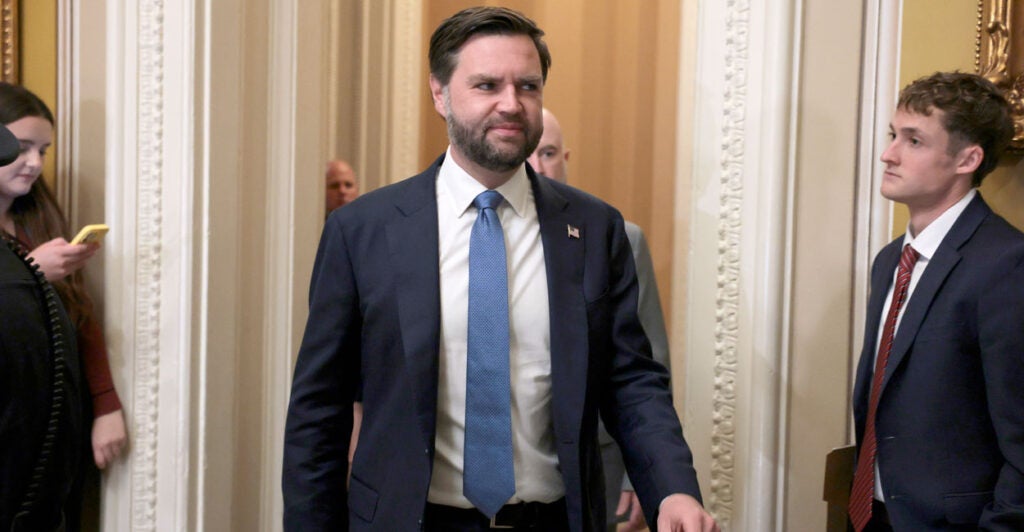 Vice President JD Vance (Anna Moneymaker/Getty Images)
Vice President JD Vance (Anna Moneymaker/Getty Images)In addition to Blackburn and Hagerty, Sen. Josh Hawley, R-Mo., has also been a skeptic of the provision.
“I would think that, just as a matter of federalism, we’d want states to be able to try out different regimes that they think will work for their state,” Hawley said in May. “On AI, I do think we need some sensible oversight that will protect people’s liberties.”
Hawley is joined in his criticism by Sen. Ed Markey, D-Mass., who tried in vain to get the provision thrown out by the Senate parliamentarian.
Whether or not the provision is amended before the bill’s potential passage remains to be seen.
Whatever the case may be, Hodges tells The Daily Signal that AI will be one of the most important issues in the years to come.
“It is going to multiply the positives and negatives in society to an extreme scale. We’re going to see unrivaled growth and medical and scientific advancements,” said Hodges.
“It’s a multiplying effect for the negatives as well … it’s substituting real human relationships for virtual relationships. Unless something is done to prevent that for the default American child, what happens when you replace relationships with a self-gratifying mirror machine?”
Hodges suggests it is within Americans’ power to reasonably regulate artificial intelligence to prevent its abuse.
“We’re going to see a lot of people try and use this technology to take advantage of other people, and we should use our generally applicable laws to enforce against that as much as possible,” he said.
The post Could Artificial Intelligence Regulation Fight Doom ‘Big, Beautiful Bill’? appeared first on The Daily Signal.
.png)

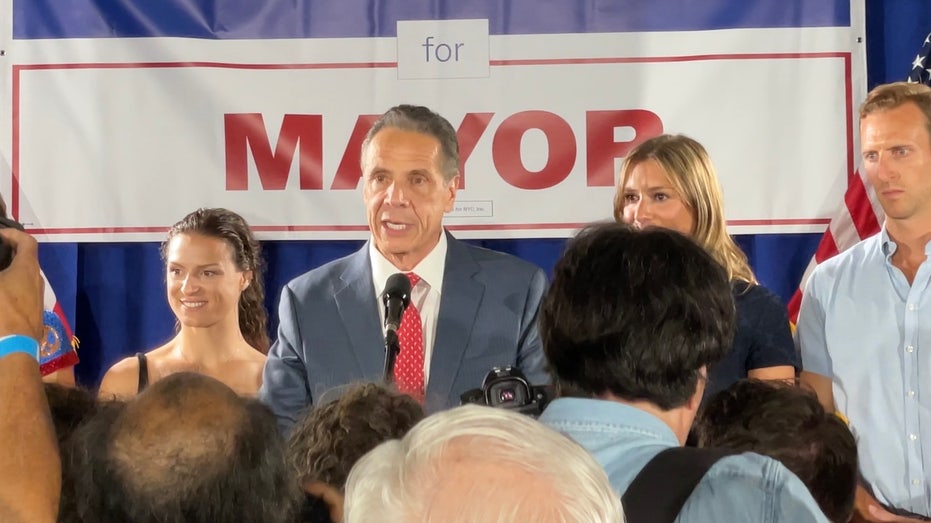
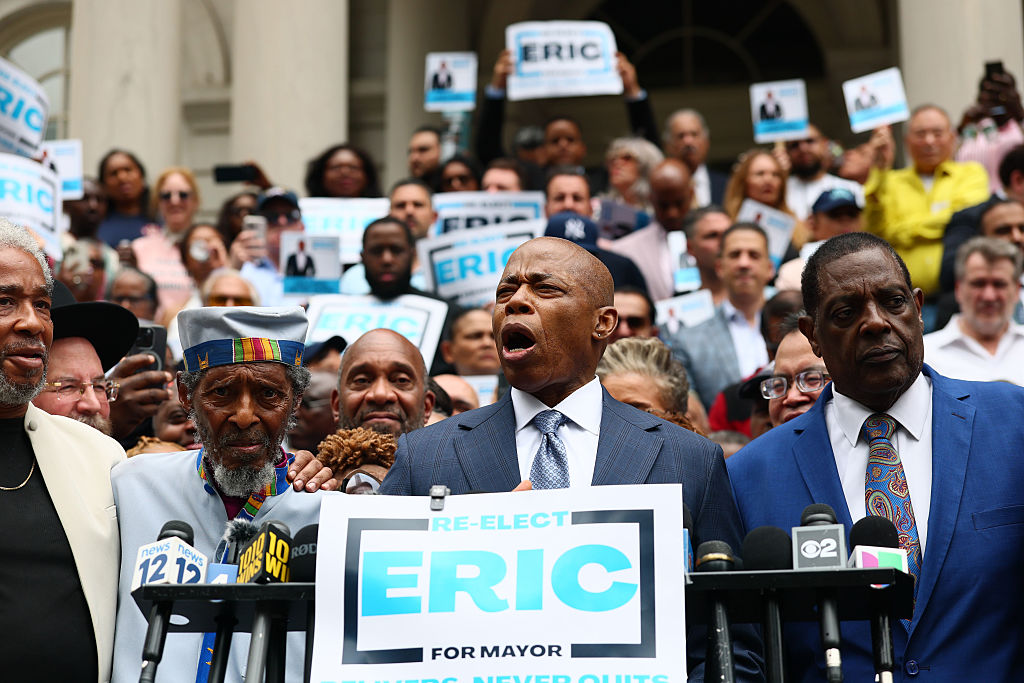









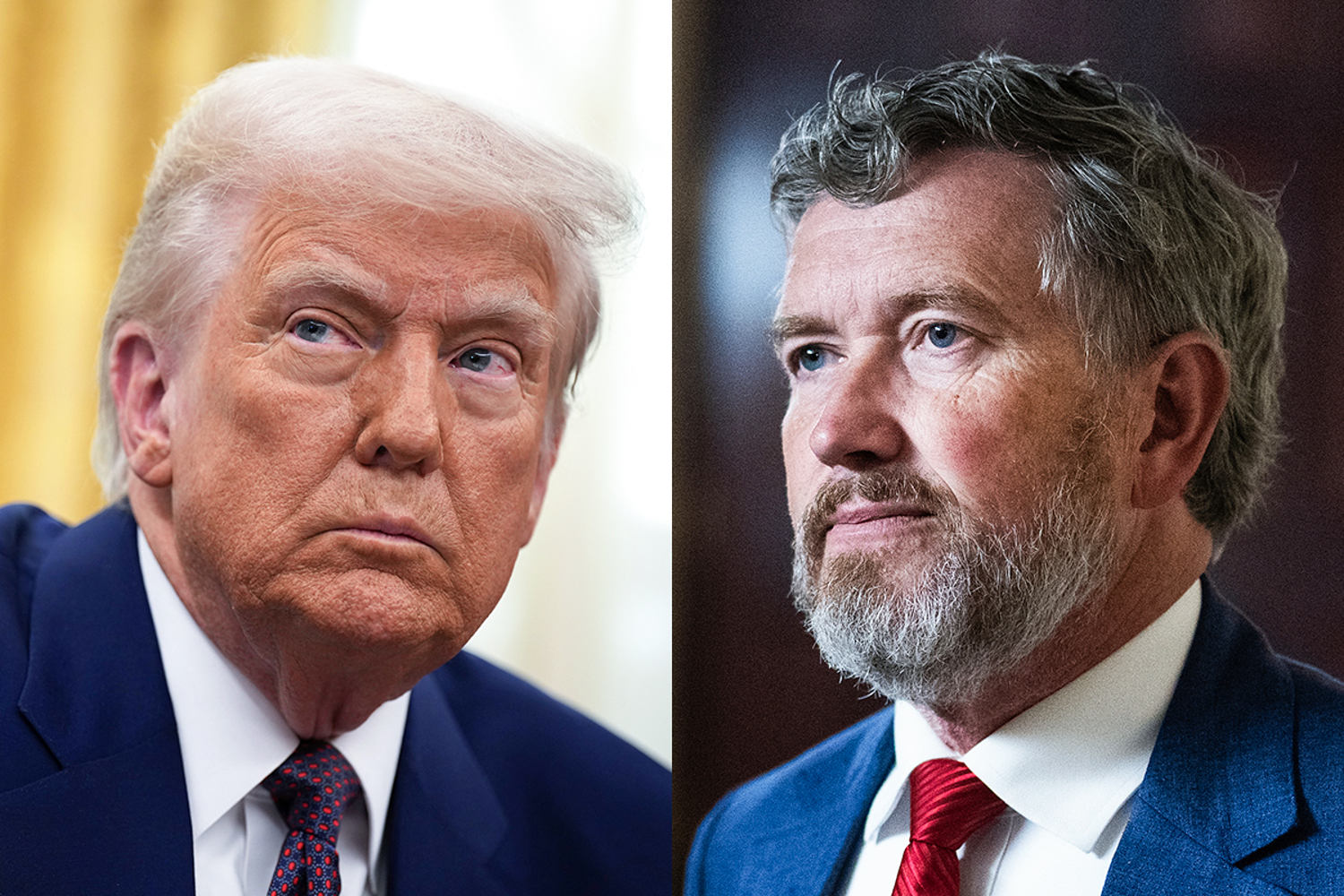


 English (US)
English (US)